
Home / Information / Blog / Blog Detail
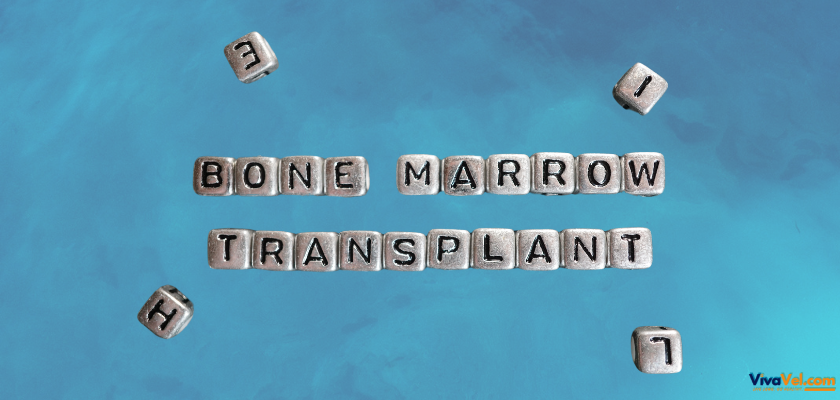
India has emerged as a global hub for advanced medical treatments, including bone marrow transplants (BMT), attracting patients worldwide. With state-of-the-art facilities, skilled specialists, and competitive costs, India offers an ideal combination of quality and affordability for those seeking life-saving procedures like BMT. This blog explores the intricacies of bone marrow transplantation, why India is a preferred destination, and what patients can expect during their journey.
Understanding Bone Marrow Transplant
A bone marrow transplant is a medical procedure to replace damaged or diseased bone marrow with healthy stem cells. These stem cells can be sourced from the patient (autologous transplant), a donor (allogeneic transplant), or umbilical cord blood. The procedure is primarily used to treat conditions such as:
The success of a bone marrow transplant largely depends on factors such as the patient's overall health, the disease stage, and the donor's compatibility.
Why Choose India for Bone Marrow Transplant?
India has become a top destination for bone marrow transplants due to several key factors:
1. World-Class Medical Infrastructure
India boasts internationally accredited hospitals equipped with cutting-edge technology for diagnostics, stem cell harvesting, and transplantation. Centers like Apollo Hospitals, Fortis Healthcare, and Medanta have dedicated hematology and oncology departments with advanced capabilities.
2. Highly Experienced Specialists
Indian doctors specializing in bone marrow transplants are globally recognized for their expertise. Many have trained at renowned institutions abroad and have extensive experience performing complex procedures.
3. Affordable Cost
The cost of a bone marrow transplant in India is significantly lower than in countries like the USA, UK, or Germany. While a BMT can cost upwards of $300,000 in Western nations, the same procedure in India typically ranges from $20,000 to $50,000, depending on the type of transplant and hospital.
4. High Success Rates
Indian hospitals report success rates comparable to global standards, often ranging between 60% and 90%, depending on the patient's condition and type of transplant.
5. Comprehensive Care
India offers a holistic approach to patient care, including pre-transplant evaluations, post-transplant monitoring, and rehabilitation. Hospitals also provide support systems for international patients, including language assistance, visa guidance, and accommodation arrangements.
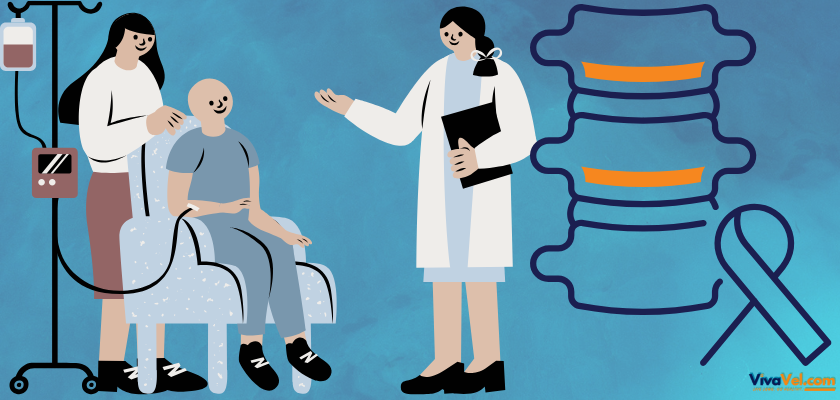
Types of Bone Marrow Transplants in India
1. Autologous Transplant
In this type, stem cells are harvested from the patient's body and reintroduced after intensive chemotherapy or radiation. This approach is commonly used for patients with multiple myeloma or lymphoma.
2. Allogeneic Transplant
Stem cells are sourced from a donor whose tissue type closely matches the patient's. This type is more complex and is used for treating severe blood disorders or genetic conditions.
3. Umbilical Cord Blood Transplant
Stem cells are extracted from the umbilical cord blood of a newborn. This option is less commonly used but can benefit patients who cannot find a suitable donor.
Leading Hospitals for Bone Marrow Transplants in India
1. Apollo Hospitals
Apollo Hospitals pioneered advanced medical care and offers comprehensive BMT services. Their centers in Chennai, Delhi, and Hyderabad are particularly renowned.
2. Fortis Memorial Research Institute (FMRI)
FMRI is known in Gurugram for its expertise in hematology and oncology. The hospital provides personalized care for both adult and pediatric patients.
3. Medanta – The Medicity
Medanta in Gurugram has a dedicated bone marrow transplant unit and state-of-the-art stem cell research and application laboratories.
4. Tata Memorial Hospital
As one of India's leading cancer treatment centers, Tata Memorial Hospital in Mumbai specializes in allogeneic and autologous transplants for various blood cancers.
5. Christian Medical College (CMC)
Located in Vellore, CMC is globally recognized for its expertise in bone marrow transplants, particularly for children with thalassemia and other genetic disorders.
Preparing for a Bone Marrow Transplant in India
1. Initial Consultation
Patients must send their medical records to the chosen hospital for a detailed evaluation. Specialists review the case and recommend the appropriate type of transplant.
2. Pre-Transplant Testing
Before the procedure, patients undergo a series of tests, including blood tests, imaging scans, and bone marrow biopsies, to ensure they are fit for transplantation.
3. Finding a Donor
For allogeneic transplants, finding a suitable donor is crucial. Many hospitals in India collaborate with international donor registries, making it easier to identify matches.
The Bone Marrow Transplant Process
The procedure involves three main phases:
1. Conditioning
Patients receive high-dose chemotherapy or radiation to destroy diseased cells and suppress the immune system, creating space for new stem cells.
2. Stem Cell Infusion
Healthy stem cells are infused into the patient's bloodstream via a catheter. This process is painless and resembles a blood transfusion.
3. Engraftment and Recovery
Over 2-4 weeks, the transplanted stem cells travel to the bone marrow and produce healthy blood cells. Patients require close monitoring to manage potential complications such as infections or graft-versus-host disease (GVHD) during this time.
Post-Transplant Care
After the transplant, patients need regular follow-ups to monitor their recovery. These include:
Support for International Patients
Hospitals in India provide dedicated services to ease the journey for international patients, such as:
Testimonials from International Patients
Many international patients have shared heartwarming stories of recovery after undergoing a bone marrow transplant in India. These testimonials highlight the exceptional care, professionalism, and compassion they experienced during their treatment.
Conclusion
India's advancements in bone marrow transplantation and its affordability and personalized care make it a top choice for international patients. By choosing India, patients gain access to world-class facilities, expert medical teams, and comprehensive support, ensuring a seamless and successful treatment journey.
If you or a loved one is considering a bone marrow transplant, VivaVel Health Tourism is here to assist you at every step. From connecting you with the best hospitals to managing travel and accommodation, we ensure your journey to recovery is smooth and stress-free. Contact us today to learn more!
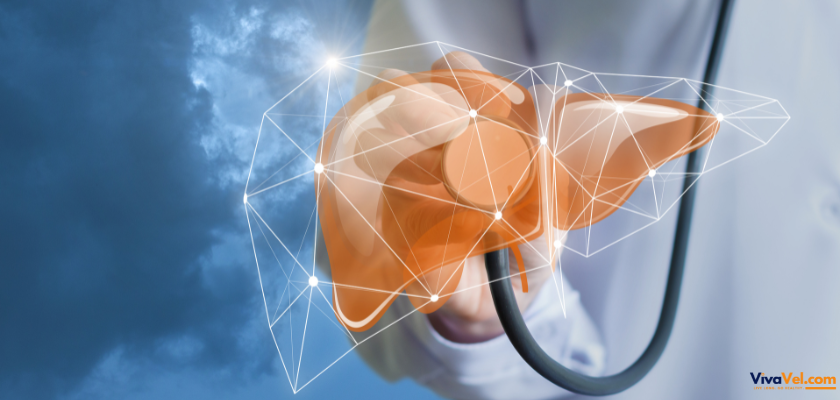
The liver is one of the most vital organs in the human body, responsible for critical functions such as detoxification, bile production, and nutrient metabolism. When the liver becomes severely damaged or diseased, its ability to perform these functions is compromised, leading to life-threatening conditions. In such cases, a liver transplant can offer a second chance at life.
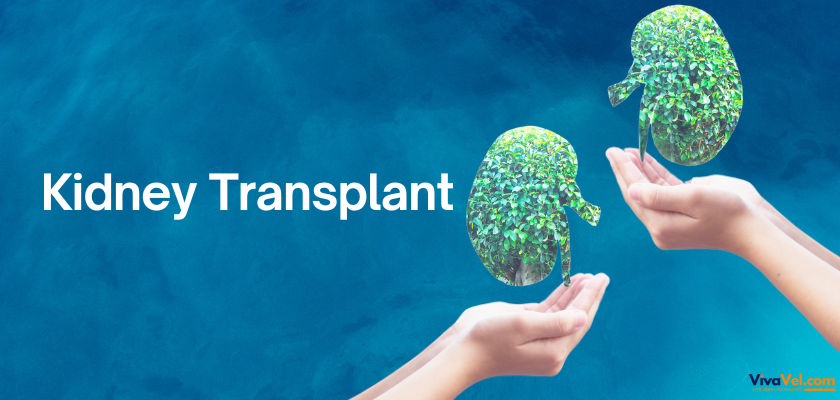
Kidney transplantation is a life-saving procedure that offers hope to individuals with end-stage renal disease (ESRD). As the prevalence of kidney-related ailments rises globally, understanding the intricacies of kidney transplantation can empower patients and caregivers to make informed decisions. Here, we delve into the essentials of kidney transplants, from indications to recovery.
What is a Kidney Transplant?
A kidney transplant involves replacing a diseased or non-functional kidney with a healthy kidney from a donor. This procedure is often recommended for patients with chronic kidney disease (CKD) or ESRD, where other treatments like dialysis are insufficient to sustain quality of life.
Who Needs a Kidney Transplant?
A kidney transplant is typically considered for individuals with:
A thorough evaluation by a nephrologist and transplant team determines eligibility for transplantation.
Types of Kidney Donors
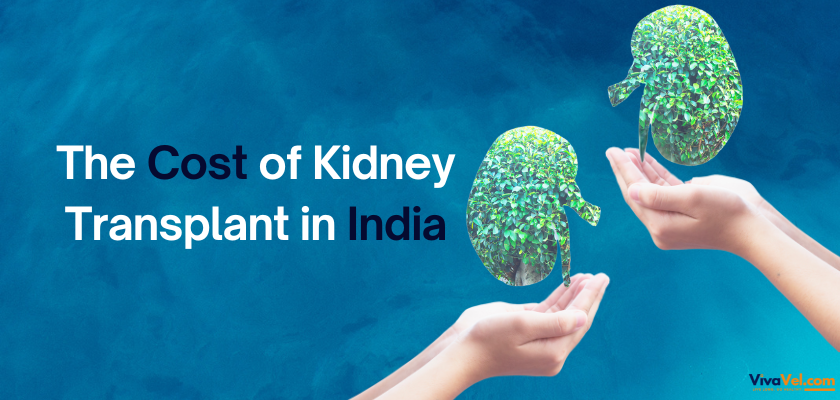
Kidney transplantation is a life-saving procedure for individuals suffering from end-stage renal disease (ESRD) or chronic kidney failure. India has become a preferred destination for kidney transplants due to its advanced medical infrastructure, skilled surgeons, and comparatively affordable costs. This blog explores various kidney transplant costs in India, including influencing factors, insurance coverage, and additional expenses.
Overview of Kidney Transplant Costs
The Cost of a kidney transplant in India generally ranges from ₹8 lakh to ₹15 lakh (approximately USD 10,000 to USD 18,000). This amount is significantly lower than in Western countries, where similar procedures cost upwards of USD 50,000 to USD 100,000.
STEP 1
Let us know your details and preferences. We maintain absolute data confidentiality. All your health records are safe, and privacy is maintained.
STEP 2
A dedicated counsellor will help you with the Best Hospital & Doctors at the lowest possible Prices.
STEP 3
While you decide on the treatment plan, we assist you with priority appointments, Visa, Documentation, Hotel & other Logistics.
STEP 4
Our team assists you with all your local requirements like Hospitalization, Hotel Stay, Transportation, Food, Forex, Lab Tests, Medicines, etc.
STEP 5
We ensure a smooth discharge process. We also assist you in tallying your bills at the hospital, all necessary documentation, and your return trip.

"VivaVel" has truly made a life-changing impact on our lives during a challenging time. My wife was diagnosed with Polycystic Ovarian Disease (PCOD), and despite consulting three different doctors in Bangladesh, we were unsatisfied and uncertain about the way forward. It was a confusing and challenging phase until a friend recommended VivaVel.
From the moment "I contacted them", VivaVel provided exceptional support and guidance. They arranged telemedicine consultations with two renowned international doctors, giving us the confidence to make an informed decision. After careful consideration, we selected one of the doctors for my wife's treatment.
VivaVel's assistance went above and beyond our expectations. They helped us with critical processes like obtaining a medical visa invitation letter, visa processing, and coordinating my wife's admission to "Artemis Hospital" in Delhi. They even suggested comfortable accommodations for me as a patient attendant.
What truly stood out was their unwavering support throughout our journey. The "VivaVel team" was always just a phone call away, offering guidance and reassurance during our stay in Delhi. Their professionalism and dedication to helping patients and their families are truly commendable.
I am incredibly grateful for the care and support from "VivaVel." They were a beacon of hope for us during this difficult time, and I sincerely hope they continue their outstanding service to help more needy patients.
Thank you, "VivaVel," for being there for us every step of the way!
Mr. Hoque, Dhaka, Bangladesh
Patient name: Shanta Islam, Dhaka, Bangladesh

Note : VivaVel does not provide medical advice, diagnosis or treatment. The services and information offered on www.vivavel.com are intended solely for informational purposes and cannot replace the professional consultation or treatment by a physician. All Copyrights are reserved with VivaVel. VivaVel does not allow copying and cloning of its webpages and contents. VivaVel reserves the right to follow the legal procedures to protect its intellectual property.
Copyright © 2025 VivaVel.com . All Rights Reserve.




